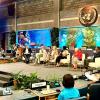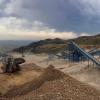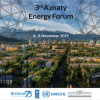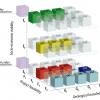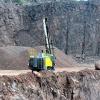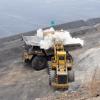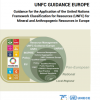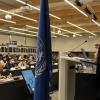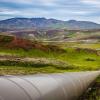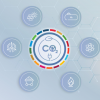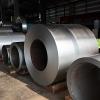Press Releases
Displaying Results 1 - 25 of 48
In Cornwall, United Kingdom, a pioneering initiative is underway to optimize resource management for critical raw materials projects. Applying the United Nations Resource Management System (UNRMS) is helping to transform the region's approach to resource extraction, processing, and sustainability.
Faced with increasing impacts of climate change, pollution and biodiversity loss, which together constitute the “triple planetary crisis”, no country can act alone. Like nature itself, these challenges know no borders, which makes international cooperation a crucial part of action to address them
Critical Raw Materials (CRM) like lithium, nickel, cobalt, copper, manganese, graphite and rare earth elements are crucial for renewable energy technologies like solar panels, wind turbines and for battery production, driving the global shift to electrification. Yet with surging demand,
Groundwater, an invaluable source of freshwater, faces numerous challenges, including overexploitation, pollution, and insufficient data to assess groundwater quantity and quality. UNECE has opened a public consultation on the draft supplemental specifications for groundwater resources for the
Critical Raw Materials (CRMs) are essential for the production and deployment of low-carbon technologies, such as wind turbines, solar panels, electric vehicles, and batteries. However, they also pose significant challenges regarding supply, demand, environmental and social impacts, and governance
A milestone for advancing sustainable resource management worldwide has been reached with the endorsement of the United Nations Resource Management System (UNRMS) by the United Nations Economic and Social Council (ECOSOC). UNRMS is a set of principles and requirements that guide the planning,
The massive shift to renewable energy and green technologies needed to meet the obligations under the Paris Agreement will require an exponential increase in the use of critical raw materials (rare earths, lithium, cobalt, nickel, copper, silicon etc.) by 2050.
The EU currently relies almost
A UN Framework to improve the efficiency and effectiveness of energy resource management is sparking significant interest from geothermal experts, signaling strong potential to unlock its contribution to climate action and sustainable development.
The United Nations Framework Classification for
At EU Raw Materials Week, European decision-makers have joined calls for governments to further implement the UN frameworks on sustainable resource management. Given the climate emergency and the urgent need for profound low-carbon transitions, there is a rapidly growing demand for critical raw
Heatwaves and droughts are drying rivers and freshwater sources, spreading desertification and accelerating soil erosion. Food production is under severe threat everywhere, raising the spectre of famine and mass starvation. As nature gasps for survival, people scramble to get hold of diminishing
The Ministry of Natural Resources of the People’s Republic of China has a long-standing cooperation with the United Nations Economic Commission for Europe to promote the harmonization, development and connectivity of global solid mineral and petroleum classification standards.
The United Nations
Guidance for the Application of the United Nations Framework Classification (UNFC) for Mineral and Anthropogenic Resources in Europe (UNFC Guidance Europe) was approved by international experts meeting in Geneva and online for the 13th session of the Expert Group on Resource Management. The
Without scaled-up efforts to finance and sustainably manage the Critical Raw Materials needed for a rapid renewables and clean energy shift, countries of the pan-European region and North America will face huge challenges to deliver on the Paris Agreement and Sustainable Development Goals, the
If business as usual continues greenhouse gas (GHG) emissions are projected to rise, leading to a median global warming of 3.2°C by 2100. Deep and quick decarbonization of heavy industries is needed, and sustainable hydrogen could be the key ingredient.
Hydrogen is already strongly present in
Bold and sustained action must start now and maximize the use of all low- and zero-carbon technologies if we are to achieve carbon neutrality by 2050, warns the Roadmap to carbon neutrality for Europe, North America, and Central Asia released today by UNECE in the lead up to critical climate talks
The application of the UN’s flagship framework for sustainable resource classification (UNFC) reached a new milestone with the decision by Queensland, Australia, to legislate application of UNFC to geothermal energy.
Queensland’s Geothermal Energy Regulation 2022 includes the UNFC Geothermal
The United Nations Economic Commission for Europe (UNECE) welcomes comments to support the implementation of a universally applicable scheme for the sustainable management of all energy and mineral resources.
Draft Guidance for the Application of the United Nations Framework Classification
Micro-, small-, and medium-sized enterprises (MSMEs), and women-led MSMEs in particular, have been especially vulnerable to the impacts of the COVID-19 crisis. However, the crisis has also caused a dramatic shift in the business-as-usual approach and paved the way for innovations, green growth, and
The availability of natural resources is at the core of attaining the Sustainable Development Goals (SDGs). The United Nations Framework Classification for Resources (UNFC) is a global standard for the sustainable management of all energy and mineral resources in alignment with the objectives of
With almost half of the world under lockdown, the continued supply of certain critical raw materials needed for an effective response to the COVID-19 pandemic has become a concern.
The Active Pharmaceutical Ingredients (APIs) and excipients of several drugs, including antibiotics such
Renewable energy now accounts for around one third of global power generation capacity, with increases being led by investments in solar photovoltaics (PV) and wind energy. More than 180 GW of renewable energy were installed in 2018, of which 100 GW were solar PV. As the costs of renewables
Renewable energy-based electric generating capacity is rapidly growing and is expected to deliver up to 30 per cent of the world’s power demand by 2023. Solar energy will significantly contribute to this growth and play a major role in the energy mix of the future. To help accelerate this
The renewable energy industry has grown significantly in the last few decades, and today, supplies almost a fifth of total primary energy demand. The contribution of renewables at large, especially wind energy, will continue to rise over the coming years. In 2018, 171 gigawatts (GW) of renewable
Country after country in Europe is racing to put more and more electric cars on the road as Europe strives to position itself as a world leader in electric vehicle innovation, digitization and decarbonization. If electric vehicles are going to feature so prominently in a connected and automated
The United Nations Framework Classification for Resources (UNFC) is a universally acceptable and internationally applicable scheme for the sustainable management of all energy and mineral resources. It can harmonise data from different classification and reporting standards and also make a



